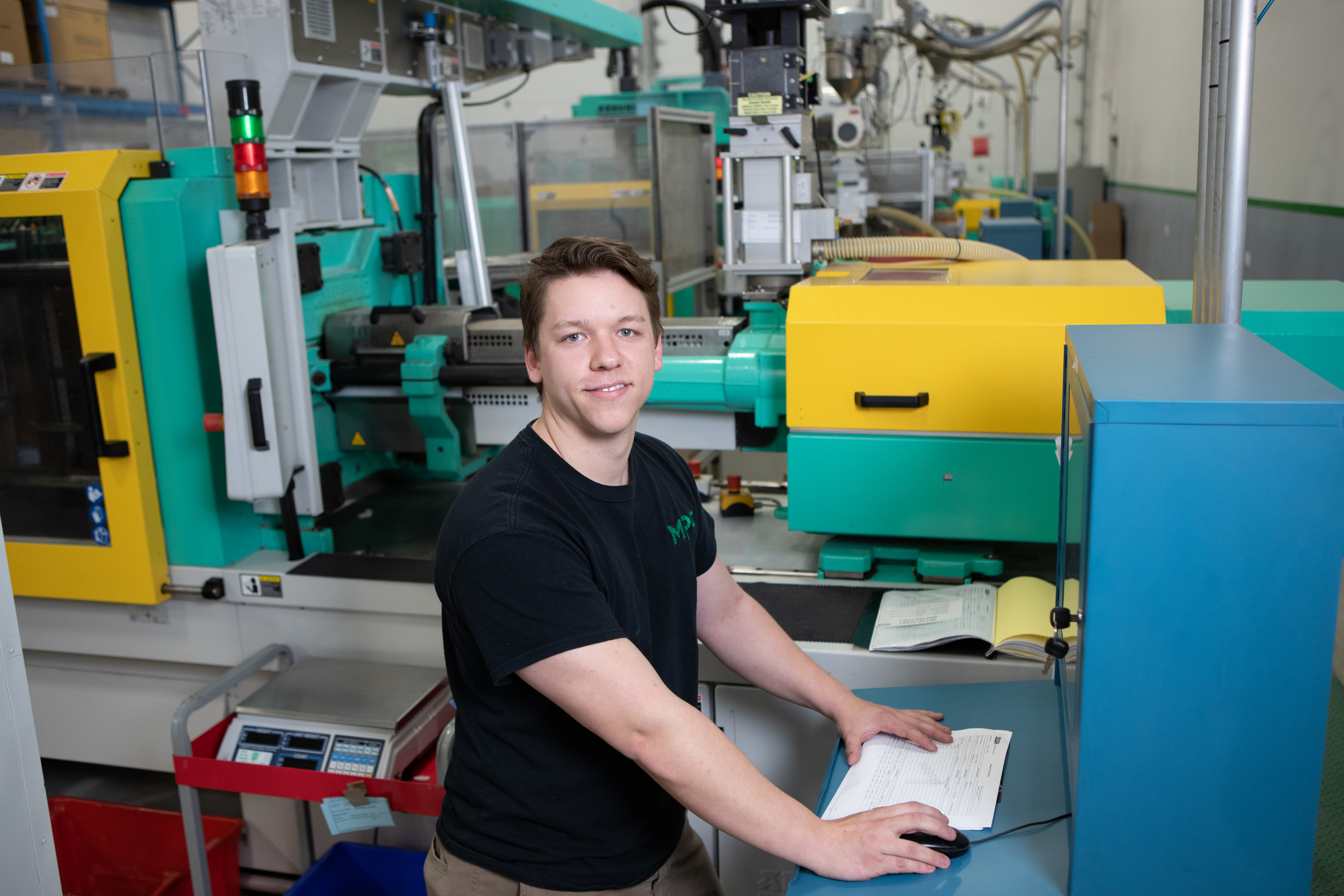
Time to reshore? Focus on resilient supply chains has one manufacturer pivoting to fill a need
by Sadi Muktadir

Molded Precision Components’ capabilities include engineering, 3D printing, mold flow analysis, design, CMM and blue light 3D optical scanning to duplicate and help manufacturers reshore their operations without losing a step.

Molded Precision Components employee at work (Credit: Molded Precision Components)
It’s no secret that supply chains have gone haywire. Especially with recent news of B.C. flooding and ongoing rainstorms expected to hit the west coast this week, consumers and businesses alike are expected to wait much longer than normal for raw goods and products being shipped from the Vancouver port.
Molded Precision Components (MPC) is an auto parts manufacturer in the plastics industry that has pivoted to focus on automotive companies looking to create a more domestic supply chain and avoid these aforementioned costly delays.
When the pandemic first hit, Molded Precision Components pivoted to providing an emergency supply of face shields and sanitizers, accelerating their medical manufacturing capabilities.
President of Molded Precision Components, David Yeamon, was clear when asked about cost-concerns manufacturers might have when it comes to reshoring.
“The cost of shipping is also way higher now,” says David. “There’s an uncertainty in costs and uncertainty in delivery dates, so having a cheaper option abroad is misleading when you can’t deliver. What’s the cost in not being able to deliver?”
David echoes the sentiment that it is more important to have a secure supply chain than a cheap one.
Manufacturers are understanding this now in a post-pandemic climate, and Molded Precision Component’s growth and transformation is a small indication of this. Their vertical integration, and ability to print, audit, duplicate and scale in-house means they have the ability to serve clients in a variety of sectors.
“During the pandemic, we’ve gone from 26,000 sq. ft. to 75,000 sq. ft. and we have the ability to serve those tier 1 multinationals. We’ve gone from 55 people to over 150,” David says.
With Ontario’s recently announced rollout of Phase 2 of Driving Prosperity to create a resilient automotive manufacturing industry, David was also asked if companies like MPC can support an EV transition.
“This is right up our alley. One of the huge focuses in electric vehicles is trying to make them lighter and we’re already serving this goal. We’re redesigning metal parts into molded components. Things like battery casings, HVAC systems are all products we can support.”
Waterstone recently named Molded Precision Components one of Canada’s ‘Most Admired Corporate Cultures for 2021’ as well as placing No. 152 on the ‘2021 Report on Business’ ranking of Canada’s Top Growing Companies.